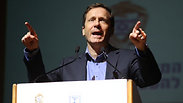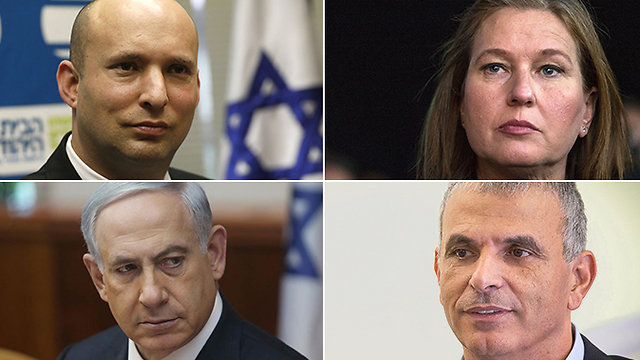
A real test for Israel's leaders
Op-ed: Asking politicians what they would do in their first 100 days in power would give them focus, and make them truly accountable.
Israel's political system requires every prime minister to devote most of his or her time to maintaining the coalition, and not necessarily to running the country. A government usually enjoys a small majority in the Knesset, and it is enough for one or two parties to drop out to ensure that it falls.
For this reason, there is no connection between the politicians' promises or party platforms and the results on the ground. Even the greatest ideas crash and burn amid the endless negotiations between rival factions.
The only exception to this rule is the first months after the establishment of various governments. The coalition enjoys momentum, MKs have no desire to start another battle over their spot in the pecking order, and political calculations are set aside.
We can learn a lot about a government in its first 100 days. Those who exhibit confused conduct are unlikely to achieve very much in the future, whereas those who come out with all guns blazing are probably going to be feted for many years to come.
For this reason, I am proposing the "Hundred Days Criterion" as an electoral benchmark. So that we do not become enslaved by a personal popularity contest, so that we are not deceived by the flowery language of a political platform. Instead, we can inspect the politicians who want our trust on their performance, versatility and practicality.

In any forum, interview or confrontation I would ask the candidates what they planned to do in their first 100 days. Boiling it down to this timeframe helps to separate the practical from the absurd.
There is no one who could end the Israeli-Palestinian conflict in 100 days, but a serious leader could present a renewal of peace talks in this time. It would be possible to deliver a serious plan to end the housing crisis, move forward the light rail project, pass tax reforms, implement recommendations from the committee to examine public health or the poverty report. But one cannot achieve all of these together.
We must not give up the vote. We cannot abandon politics to organized interest groups, nor should we abandon our dreams of improving our society. But instead of being held captive by gimmicks, clips and pretention, politicians should be posed one simple question: What will you do in the early days?
A clear answer would compel them to provide us with an account of their actions, one hundred days from the date of the election.
Ronny Douek is a businessman, social entrepreneur and philanthropist.










